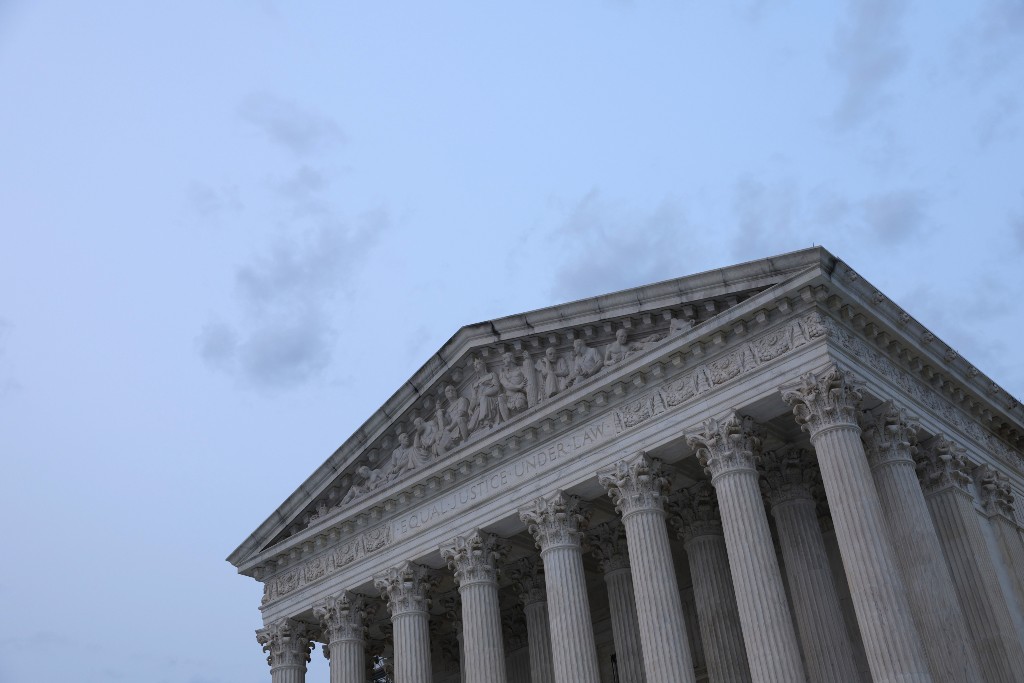
Much has been written in the last 24 hours about where charges against former President Donald Trump would be brought with respect to his handling of government documents and obstructing the investigation into that conduct. The Constitution requires each criminal charge be brought in the location where the criminal conduct at issue occurred, but often that is in multiple jurisdictions, leaving the government free to choose from a variety of locations after considering a variety of factors.
But what if.
What if Special Counsel Jack Smith charges Trump in Washington DC, wins a criminal conviction from a jury finding the former president guilty of all charges, but also finding that the conduct occurred outside of DC and thus should never have heard the case? Can Smith try again in Florida?
Maybe not.
Indeed, a little-noted pending Supreme Court case may well be something that is complicating the calculus for Smith, leading to a particularly cautious approach on his part. The case at issue, argued before the Justices only a few weeks ago, concerns what happens when the government gets its venue decision wrong. Venue is an issue that can be submitted to a criminal trial jury, to decide whether the particular count the jury is considering is properly brought in the district.
The Supreme Court case concerns the legal ramifications when an appellate court or the jury itself determines that the charge was not properly brought in that district. One issue is whether the appropriate constitutional remedy is to prohibit the government from bringing the case in another district – preventing prosecutors from getting a second bite at the apple. An adjacent constitutional principle may also come into play: the double jeopardy clause. That clause typically arises when a jury returns a verdict of “not guilty,” which precludes the government from trying the defendant again for that crime. But what are the consequences when a jury (or appellate court) is “only” or specifically finding that the case was not tried in the correct district? Can the defendant be tried in another district? Does it depend on the good faith of the prosecutors in selecting the venue, or the factors the government considered, or is that all irrelevant?
It is always hazardous to try to guess the outcome of a Supreme Court case following oral argument. That said, “the US Supreme Court appeared unconvinced that trying a criminal case in the wrong place precludes prosecuting it again at the correct venue,” a close observer of the oral argument wrote. That may be true, but there were also several difficult and skeptical questions asked of the government. What’s more, even if the Court rules that a mistaken venue decision does not always prevent a second bite at the apple, the Justices will presumably want to inject some limiting principle. Indeed, even the government’s own brief acknowledges that a judgment in its favor would still allow a court to impose the “remedy of acquittal without possibility of retrial … in extraordinary circumstances, where appropriate.” Following up on a question by the Chief Justice, Justice Elena Kagan asked if that statement in the brief is meant to guard against “bad faith” or other forms of abuse, which the Assistant Solicitor General answered it does. So what exactly the Court might choose as the test – even if it decides in favor of the government – is up in the air. Of course, even at this late stage, “a dismissal of the case as improvidently granted or some other narrow disposition is not out of the question,” professor Gabriel Chin observed following oral argument.
Regardless of what one might think the law should be, the law is at this moment unsettled. Even if the Department of Justice is hopeful the Court will rule in its favor, as of now the Supreme Court has not ruled.
The upshot: all else being equal, the prudent prosecutor will be reluctant to choose a venue where, if the government gets the venue decision wrong, it cannot proceed to try the defendant in another district for her crimes.
Thus, although Florida may be a less advantageous district for the government — given its jury pool and its judges, who are less steeped in handling classified document cases (which is a particular expertise of the DC court, where many judges have sat on the Foreign Intelligence Surveillance Act court and deal with national security matters including protection of classified information) — Florida is legally a less risky venue at this juncture. Whatever legal and factual arguments might support venue in Washington, DC, the consequences of getting that calculus wrong, is an unknown variable that will counsel in favor of caution on the part of DOJ. It is that caution that may well be behind the flurry of activity we are seeing in Florida.
IMAGE: A view of the U.S. Supreme Court on June 5, 2023 in Washington, DC. (Photo by Alex Wong/Getty Images)
Pending Supreme Court Case Complicates Special Counsel Smith's Choices - Just Security
Read More

No comments:
Post a Comment